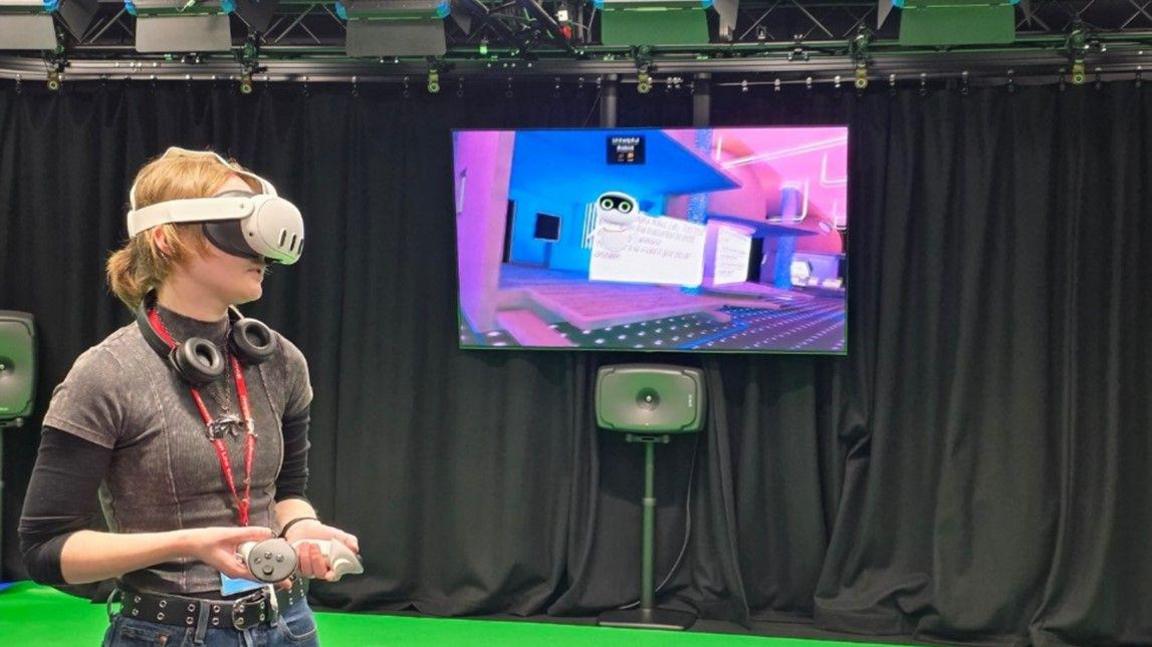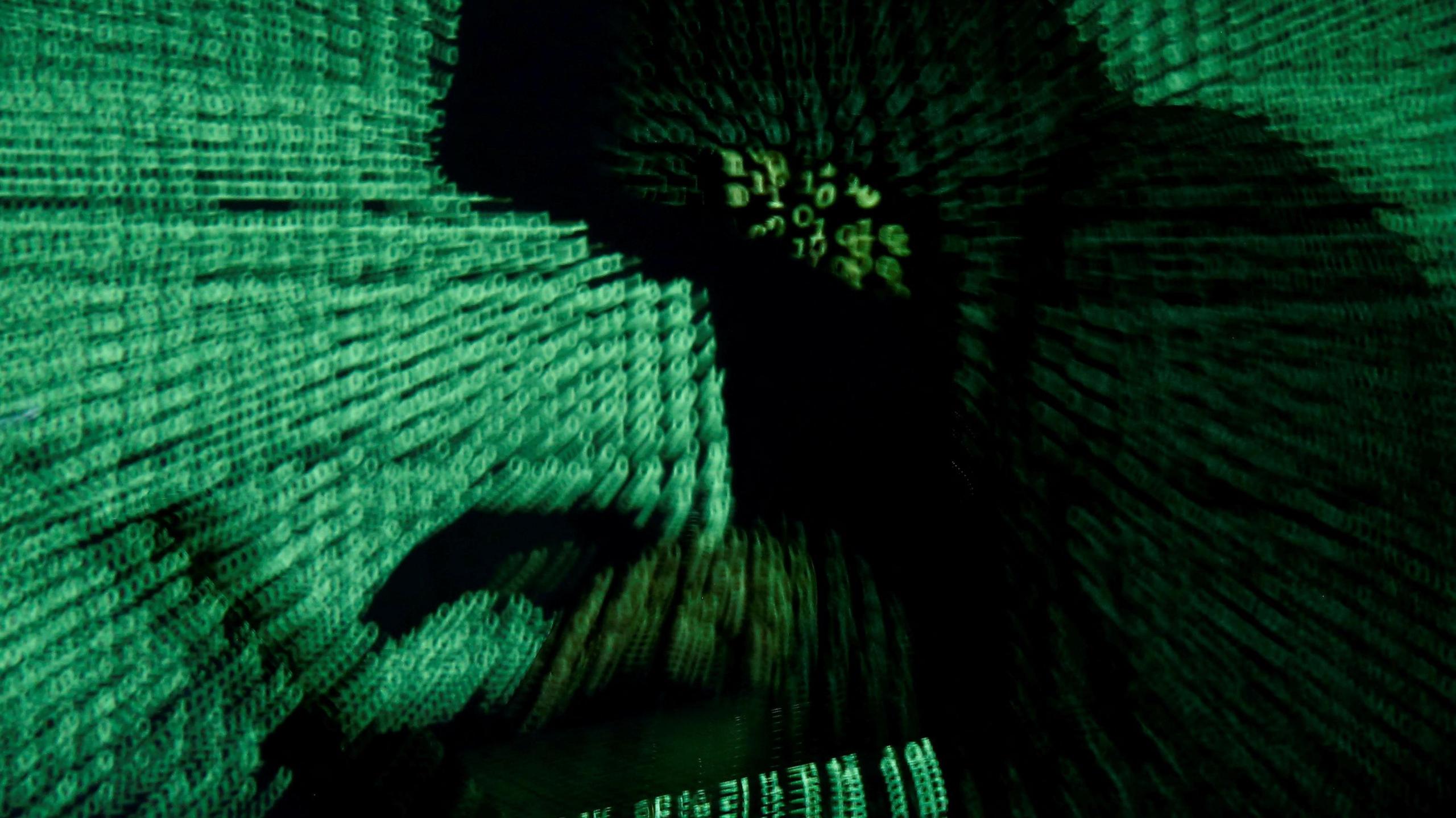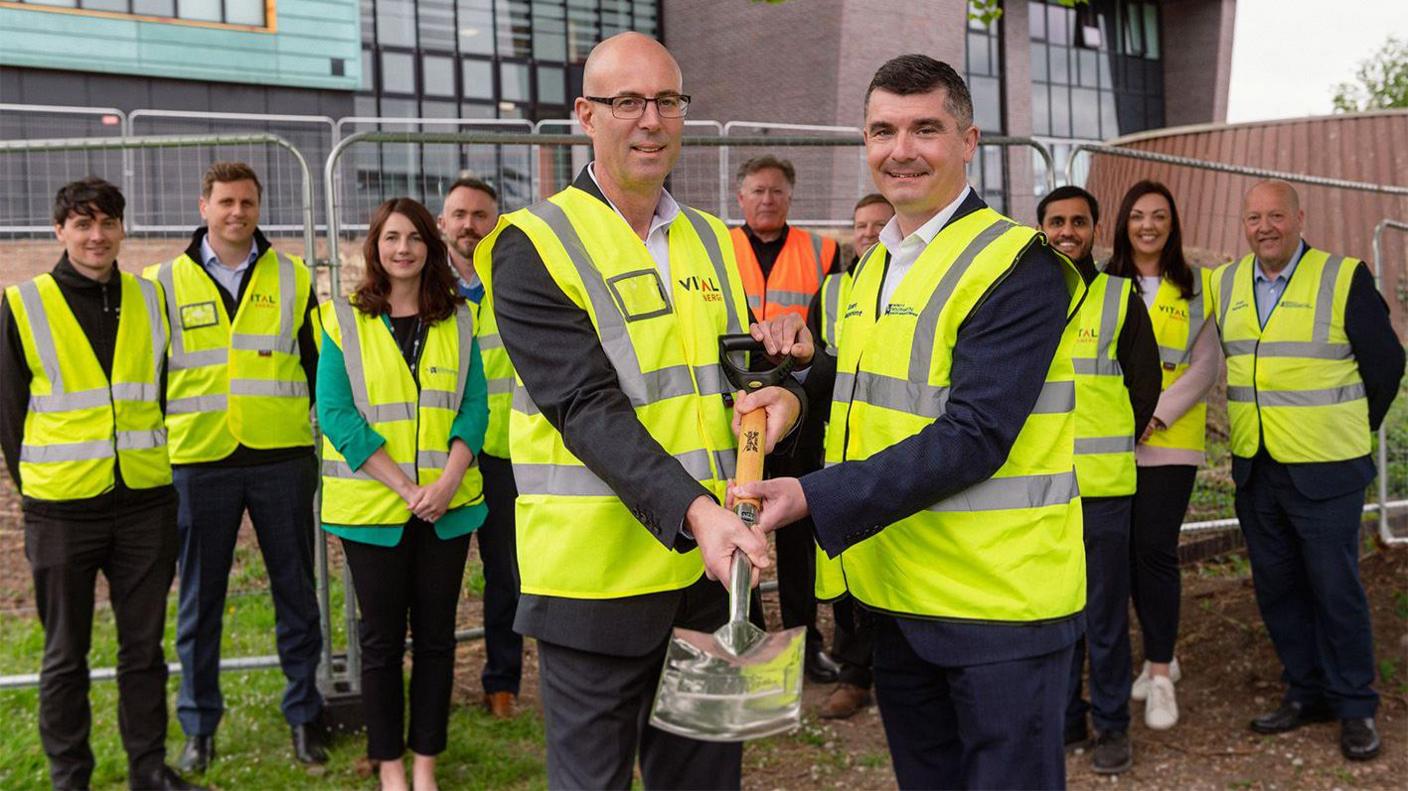Experiment sees literature students using VR

The experiment sees students moving beyond traditional essays to create their own VR builds
- Published
A university is bringing a new dimension to its English Literature course by trialling Virtual Reality (VR) technology.
The University of Wolverhampton's Prof Sebastian Groes is trialling the technology with the course's third-year students on the Literature in the Digital Age module.
The experiment sees students moving beyond traditional essay-writing to create their own VR builds - immersive 3D spaces in which they explore a chosen literary topic, author or text.
Prof Groes is working on the scheme with David Burden of Daden Limited, the editor of The Metaverse book series for Routledge.
Prof Groes said the aim was to "counter digital inequality".
"We are exploring how the structure of memory is affected differently when building and navigating a VR essay, and how this technology might offer new, inclusive learning and research opportunities," he said.
Students have been incorporating the likes of road maps, video clips, PowerPoint presentations, AI ChatBots, and PDFs in their VR builds, to deliver their arguments.
Their presentations are then shown in the university's Screen School VR studio.
Building on the pilot, which the university described as successful, Mr Burden will train arts and humanities colleagues during the Digital Humanities Research Group's first VR Training School, taking place on 21 and 22 May.
Get in touch
Tell us which stories we should cover in Wolverhampton
Follow BBC Wolverhampton & Black Country on BBC Sounds, Facebook, external, X, external and Instagram, external.
Related topics
- Published13 May

- Published12 May

- Published4 February